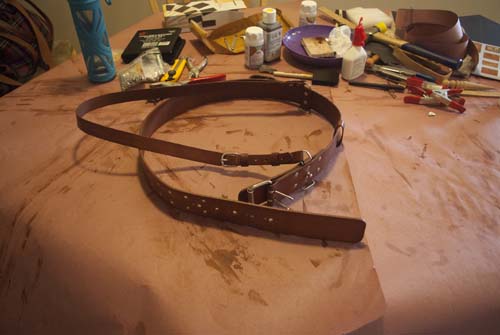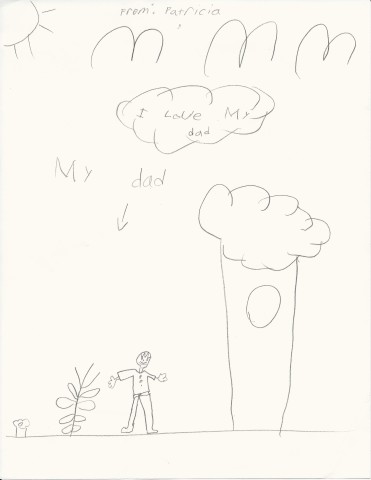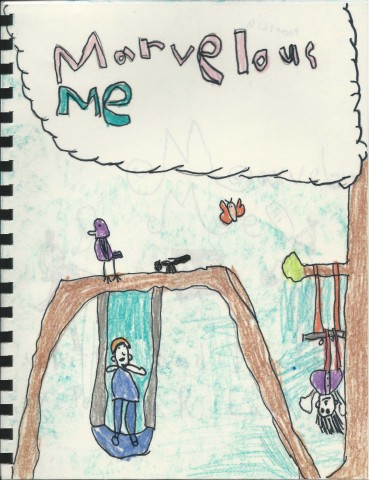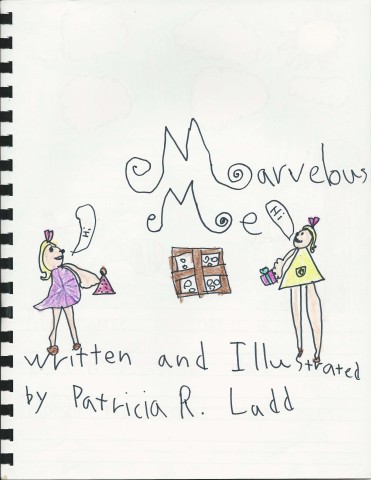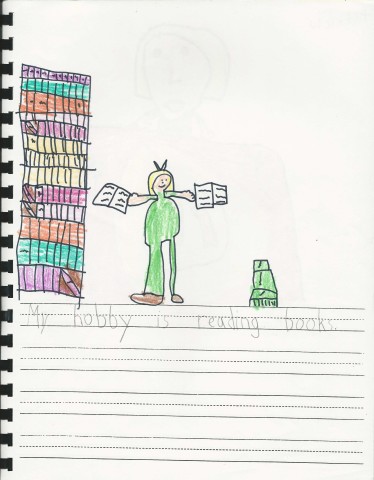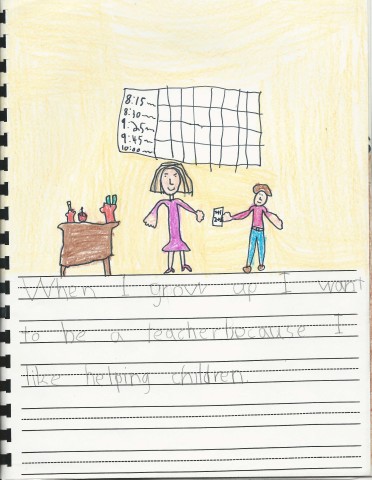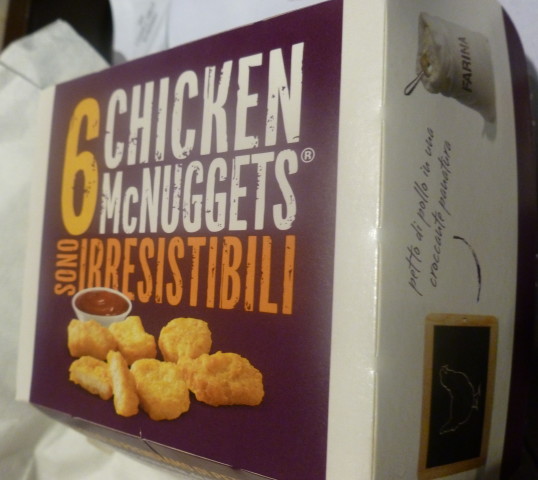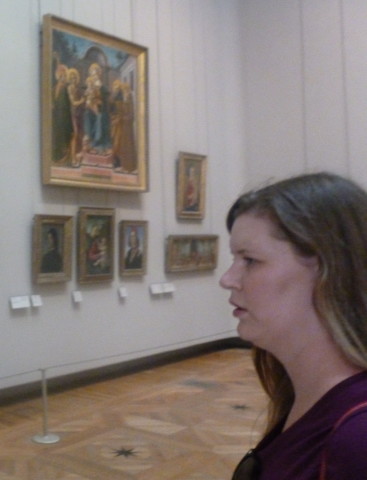My friend Alana wrote this great top ten of BBC Miniseries for June!! There are definitely some I have to watch now!–PLadd
So, I LOVE watching BBC miniseries! (Honestly, most of their regular series could be counted as mini by American standards since each season only lasts 8-10 episodes plus a Christmas special – I’m looking at you, Downton Abbey!) Generally, a mini-series is one “season” and lasts 2-10 episodes with no sequel. And for those of you who don’t know what BBC is, it stands for the British Broadcasting Corporation, and it’s responsible for some of the best and worst television shows ever made. In this blog post, I have narrowed my rantings and ravings down to only include those miniseries that were adapted from novels because this could have easily been “My Top Favorite 50 BBC Miniseries.” Also, I like the ones adapted from literature better anyway because I like to read literary works (books, plays, epic poems) first – this earned me my double major in English Lit. – and then watch all available film and television media adapted from those works (including the loose adaptations, like Strange Case of Dr. Jekyll and Mr. Hyde = Fight Club; Emma = Clueless; The Odyssey = O Brother, Where Art Thou; etc). Anyway, Patricia (who officiated my wedding!!! to the anime-loving mad genius who brought you this guest blog post) was gracious enough to give me a forum for voicing my passionate and vastly well-researched opinions on this subject matter. Now, when I say passionate, I mean I would like to see someone get me talking about this and then try to change the subject in under an hour, because that would be a feat of will the likes of which I have never seen. And when I say vastly well-researched I mean that I have been watching and rewatching and force-feeding my friends and relatives these miniseries for at least 15 years, (so like since middle school). I hope I will be forgiven, in light of this confession about my scholarly tendencies, for most of the list just devolving into me comparing the relative dreaminess and you-go-get-em-girlfriendedness of my favorite characters. Also, I guess I’m bound to say that there are some spoilers in my list, but I tried not to totally ruin any of the lesser-known stories.
The List
So the order of this list changes frequently – usually depending on what I have read/watched last. But #1 never changes and that’s really all that matters. Also, it’s worth mentioning that it really does help if the show’s source material is entertaining, interesting, and/or well-written and the characters likable and/or eccentric. For example, Tess of the D’Urbervilles (2008) is beautiful, well-acted, and true to Thomas Hardy’s novel about a rape victim who never stops being victimized by her own bad decisions and the general cruelty of the society of which she is a part until her horrible end, but I dislike the story and all of the characters so much for some reason?? I just couldn’t enjoy it and will leave it out of any favorites list.
And away we go…!
10. Great Expectations (2011)
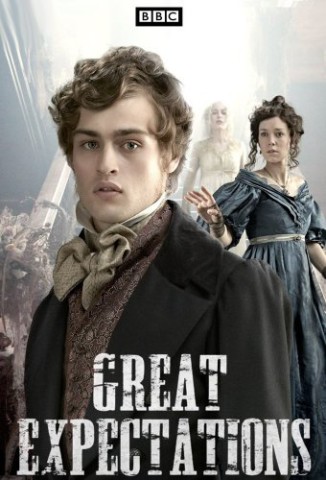
Check out those pouty lips!
This version of Dicken’s Great Expectations is surprisingly fun! I’ve always had a great time watching it – possibly because Pip and Estella are so distasteful and entitled, and I secretly root for karmic justice for the both of them. But in the end, I find it very satisfying that they have each other to make overdramatically miserable.
Speaking of overdramatic misery, Miss Havisham is played by the beautiful Gillian Anderson (who will be mentioned again further down the list) and she plays up the drama of this crazy spinster forever obsessed with the wedding cancelled by the con artist who left her at the altar and took a bunch of her money.
Her special brand of crazy is fun to watch mostly because it is difficult to find any real sympathy for her. She passes on her paranoia and inability to love to her ward, Estella, who she practically brainwashes beginning in early childhood.

All dressed up and no one to wed.
On the other hand, Pip is an orphan being raised by his aunt and uncle and he is a mixed bag of ambition, sympathy, and blind devotion to Estella because marrying her will mean that he doesn’t have to work and can live the life of a gentleman of leisure. I love when his uncle Joe yells “don’t forget where you came from,” at Pip’s carriage as he is being sent to London to learn to become a gentleman by his anonymous benefactor and the look on Pip’s weirdly pouty face says very clearly: “I’ve already forgotten where I’ve come from.”
9. North and South (2004)
Hot Thorin!!!
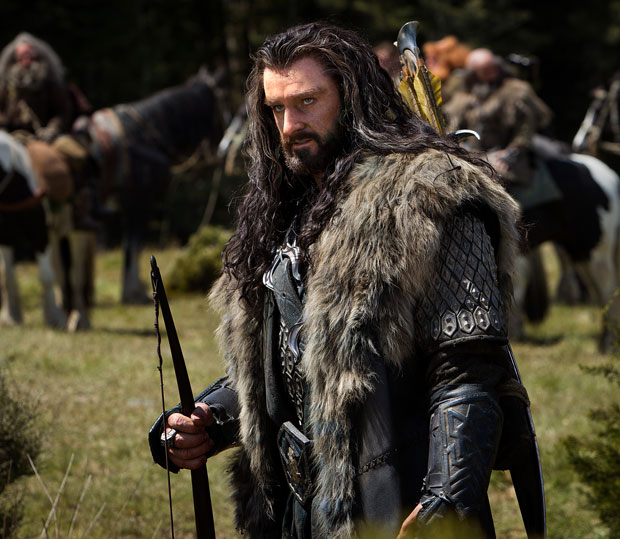
That Thorin is so hot right now!
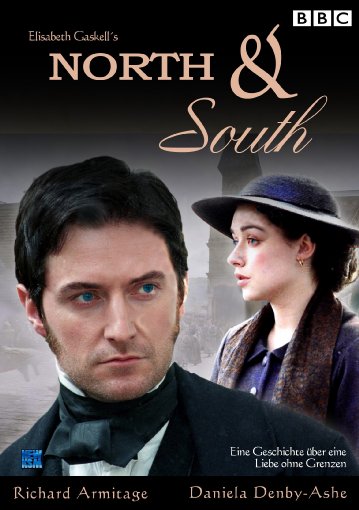
Instead of longing for the Arkenstone, he longs for… her.
…
…
That was all I was going to say. Just a quick reference to the fact that 6’2″ tall Richard Armitage who plays a dwarf lord in The Hobbit, is also in this dramatic miniseries. But the show deserves more than that from me. It’s actually a really interesting look at the Industrial Revolution in Northern England and the changing mindsets of the people who earn their wages in these giant textile factories. Hot Thorin plays a factory owner and general manager who treats his employees with tough fairness and allows for zero nonsense.
The story is technically about Margaret Hale who moves from Southern England to the North with her father after he resigns from the clergy. She must adapt to the cold climate and even colder reception she receives as an outspoken, unmarried woman. The series falls apart for me a little when she falls in love with Mr. Thornton (Hot Thorin) after his disastrous Darcy-esque declaration of love for her. She begins to think better of him after learning more about the type of man he is hiding under his callous exterior, but it should not automatically follow that she is suddenly in love with him. He does not significantly soften toward her like Darcy does when Elizabeth is at Pemberley; he is just as cold and abrupt as before and she just seems okay with it. At the end he does show signs of changing, but not enough to make the love story really satisfying as a viewer.
The other great aspect about this miniseries is Margaret’s relationships with the other women around her. This part is much more fleshed out than a lot of other shows with a female lead protagonist. She develops friendships and rivalries and finds purpose in helping the poor thanks to Bessy – played by the lovely and seemingly ubiquitous Anna Maxwell Martin.
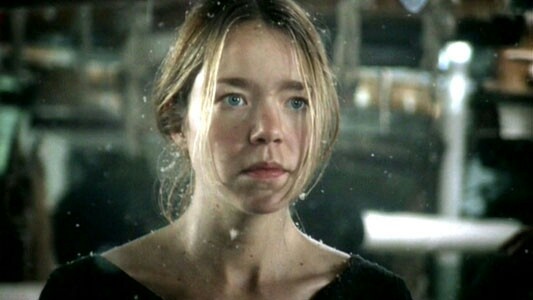
So intense. So tragic. So Bessy.
I particularly enjoy the rivalry that the ladies of town believe they have with her for Mr. Thornton’s hand in marriage, which she does not care for at all until much later in the story. The cattiness is just funny to watch.
8. Middlemarch (1994)

Rufus Sewell’s afro!
I started reading George Eliot’s novel Middlemarch when my then-fiancé, now-husband’s mom was reading it and was disappointed that more people didn’t give it a fair shot. I mean, it is long and not everyone has the literary stamina to really appreciate this 900 page masterpiece, but luckily, I DO! I ended up really enjoying it and was happy to discuss it with her last Christmas. We talked about the characters we loved and hated, how its being published was a feminist victory, and how we would both like to sit down and chat with George Eliot. She suggested I watch the miniseries and I did not have to be told twice – as I stated before, I LOVE BBC miniseries. It’s more fun than I expected since it left out many of the scenes in which men talk about politics, only leaving in the funny/important political scenes.
This is the oldest miniseries on the list and it has many of the elements of a mid-90s production that endear it to me.
Such as, strange flashback sequences:
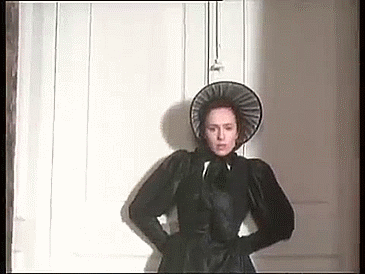
How could this happen! Over and over and over again!
And weird hair styles:

Even old Sir Godwin is laughing at her hair
Besides those things, this miniseries has its ups and down as far as entertainment value goes. It can be a bit tedious at times (usually when the men are talking), but when something dramatic happens – and it frequently does – I am often caught gasping and covering my mouth from the scandal of it all! George Eliot’s story is a marathon of a read and the miniseries is 6 1-hour long episodes, but if you get through them, you find a better understanding of human folly and a realism you don’t find in other stories on this list. Not all the good characters end well and the bad characters don’t end as badly as you would wish. Poor Dr. Lydgate, for example, made a very unfortunate marriage (a common occurrence in this story), and he has to give up his lofty ideals and ambitions to make the world better through scientific inquiry and reform of medical practice in order to care for gouty old rich men so he can pay for his wife’s pretentious and extravagant lifestyle. The epilogue offers no comfort for his fans who just want to see him end well.
In any case, the female characters really take the lead in this story (shouldn’t be too surprising since George Eliot was a woman). Some are great and inspiring (Dorothea Brooke and Mary Garth), some are harmless non-entities (Celia Brooke and Mrs. Cadwallader), and some are entitled and manipulative (Rosamond Vincy). They all showcase different possible aspects of a woman’s character and the story is richer for giving them all a unique voice.
7. Northanger Abbey (2007)
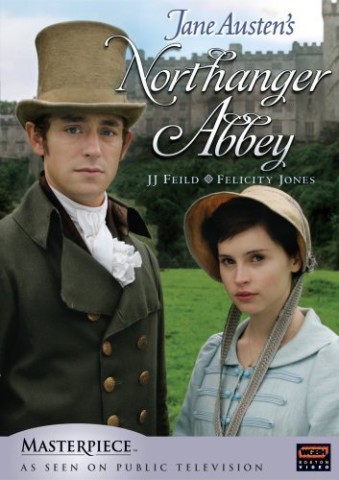
Felicity Jones waiting for her Oscar moment.
So you know how Kiera Knightley seemed to be the British it girl of the last decade? Well, I believe this decade belongs to the lovely Carrie Mulligan. She is so in right now! Her character Isabella Thorpe is so wicked and sensational that you will find yourself much drawn in by her charm, much in the way our main character Cathy is.
The cast of this miniseries is just so much yes… Oh my stars, is that Felicity Jones before she was nominated for an Oscar!? Yes, yes, it is. Jones plays Austen’s heroine
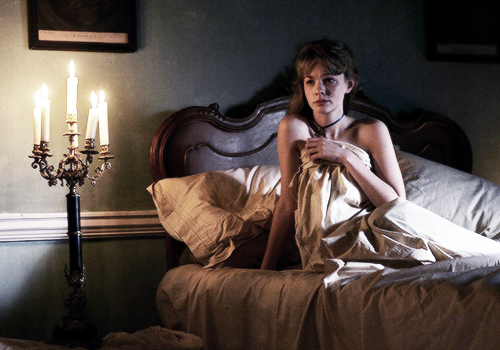
Hmm… I wonder what happened here, Isabella.
Catherine Morland in this satirical treatment of a Gothic novel. She is brought up in the country and her mind is allowed to run wild with what she reads in novels – including novels about naughty monks and vampires. Then, she is taken by some wealthy family friends to Bath to enjoy city life. She is quite swept up in the drama (both real and imagined) of her new acquaintances, including Isabella and Mr. Tilney and the mysterious, possibly haunted Abbey he lives in!
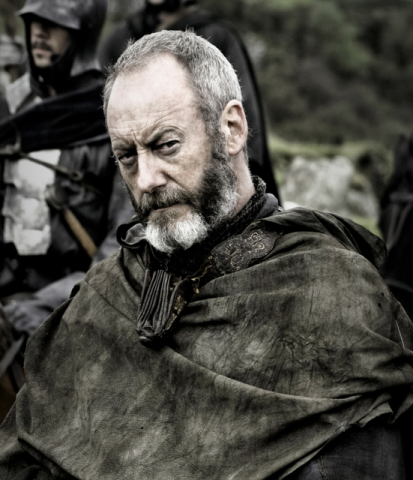
What’s your dowry look like, Ms. Morland? Are there… onions?
Also, Sir Davos Seaworth of Game of Thrones was there! Only meaner and less open-minded.
Northanger Abbey also enjoys the great distinction of having Mr. Tilney as its main love interest, as he is easily the most likable of the Austen heroes (yes, debatable). In defense of this controversial claim: he enjoys dancing (take that, Mr. Darcy!); he is funny and likes a good joke; he is wealthy, but amiable (which helps when he is maybe less wealthy later on); and he is oh, so handy with picking out a nice muslin for a new dress! Beyond all that, he is just smart and kind and fun in a way that most of the other Austen heroes are not!
[embedplusvideo height=”360″ width=”640″ editlink=”http://bit.ly/1CHkw9I” standard=”http://www.youtube.com/v/BwXkPKBTr5M?fs=1&start=31″ vars=”ytid=BwXkPKBTr5M&width=640&height=509&start=31&stop=55&rs=w&hd=0&autoplay=0&react=0&chapters=¬es=” id=”ep8499″ /]
Poor Mrs. Allen!
6. Jane Eyre (2006)
OMG why is Mr. Rochester so smoldery?!

Hello there, ladies. Watch while I smolder.
This is a really beautiful and faithful adaption of a story that gets mired in controversy and general haterism (Yes, I have read Wide Sargasso Sea AND Madwoman in the Attic. No, loving Jane Eyre does not mean I’m anti-feminist), but all I can say is I’m really digging this Mr. Rochester. For all his adultery and locking up of mad wives, he is just plain lovable in this adaptation. He loves Pilot (his Irish Wolfhound), he’s rakish without being too vulgar, and he really does love Jane. And what’s not to love about this Jane! She is full of life and spirit and you-go-get-em-girlfriendedness! They try their best to make her appear plain, but she is still beautiful in a very real way, as opposed to the clasic Hollywood way. I love that she’s outspoken and stands up to both people she loves and people who wish her ill. As Dumbledore once said,

Her situation is sucky, but she uses what little agency her own meager means afford her and she makes her own decisions. She loves whoever she wants, gives away her fortune to whoever she wants, and runs away and WANDERS IN THE GOD-FORSAKEN MOORS for as long as she wants. And you gotta love her for that.
(Side note: St. John Rivers is the WORST.)
5. Emma (2009)
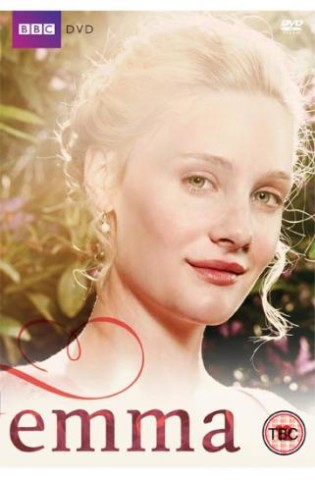
Shine bright like a diamond, Emma.
This treasure of a miniseries stars Romola Garai, who is just a delight! She is almost as perfect as Jonny Lee Miller as Mr. Knightley! This miniseries is tinted in mostly soft, pastel palettes, reflecting how truly light and happy Emma’s world is. She never has to suffer from poverty or deficiency in health or anything worse than the emotional growing pains that come from maturing into a better understanding of herself and her place in the world (yes, she loses her mother when she is very young, but even she will tell you that she does not remember or feel the trauma of it).
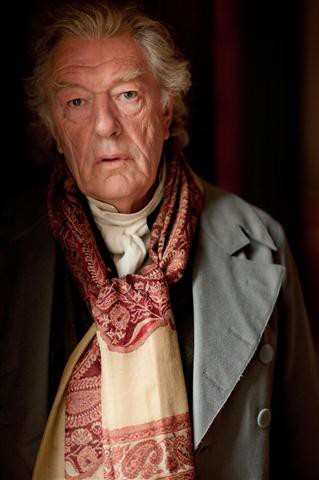
Mr. Woodhouse looking properly wary of your cake.
Her father, played by Dumbledore 2.0, is wretchedly terrified that something will happen to Emma and is crazy over-protective. Like, won’t-let-her-have-cake protective, despite his physician seeing nothing wrong with having some cake at a wedding. True, his wife died of a sudden illness or something like that, but come on, Mr. Woodhouse, no cake?
Emma’s peers are not as well-off as she and each has to deal with their own important dilemmas, most of which, Emma makes worse in some way. I always feel bad for poor, talented, tragic Jane Fairfax, who is orphaned, brought up by rich friends, but destined to be a governess unless she can find some rich, equally tragic fool to marry her. Sigh. But Emma’s own troubles, even the main ones driving the plot, are relatively very small, which can be a comforting world to retreat into when your own troubles are piling up around you. And even though it is hard to determine if Emma is really worthy of the wonderful Mr. Knightley, who is wise AND dreamy, I always root for her in the end!
[embedplusvideo height=”320″ width=”640″ editlink=”http://bit.ly/1U69Igk” standard=”http://www.youtube.com/v/iSXGuoVumxM?fs=1&start=56″ vars=”ytid=iSXGuoVumxM&width=640&height=320&start=56&stop=&rs=w&hd=0&autoplay=0&react=0&chapters=¬es=” id=”ep6141″ /]
4. Bleak House (2005)

Spoooooky!
Bleak House is a slightly less well-known novel by Charles Dickens. In fact, I had not even heard of the novel until I read the description of this miniseries on Netflix a few years ago. I watched it, LOVED IT, but have not been able bring myself to read the novel. There is just something about Dickens novels that is so blah and samey, but this does not affect the miniseries adaptations because Bleak House is SO FUNNY despite its bleakness. It follows a group of characters all waiting for the courts to make a ruling about a certain estate that doesn’t have a single clear will guiding its disposition. This estate is worth CRAZY MONEY – like never have to work a day in your life for a couple of generations money. There are rumors that there might be a last will lost somewhere that would clear it all up, but until it is found the possible heirs have to wait and watch as lawyers do nothing to further their case. I actually learned a lot about the inner workings of the 19th century British court system (sexy, I know) through Dickens’s satirical lens.
The best character in the whole show is Mr. Guppy.
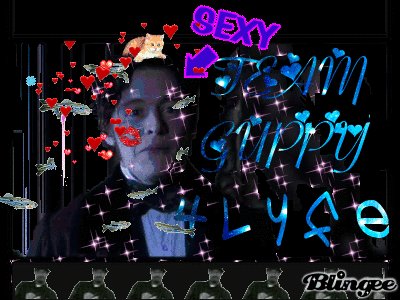
I’m Guppy and I know it. – gif by WEEDgoku420
He is tragically in love with our main heroine, Ms. Esther Summerson, whom he frequently refers to as “my angel.” Mr. Guppy doesn’t have the class, tact, moral fiber, or even properly posh accent to woo Esther, but he does try his darndest. Some might try to belittle his feelings of TRUE LOVE because he abandoned his courtship when he saw that Esther’s face was scarred by small pox, but he took up his quest for her hand again as soon as her scars faded tolerably well!
This story is full of twists and turns and I think its relative obscurity helped make every scandalous reveal a real surprise. Since I had never even heard of the book, I was genuinely excited to see what happened next and was delighted that the miniseries is 8 50-minute long episodes! YAY!
Also, Anna Maxwell Martin and Gillian Anderson (both mentioned previously in this list) are in this miniseries and they are just perfect!
If you need anymore reason to love this one, Tywin Lannister shows up pretty frequently and is surprisingly unchanged as the strategic, hard-hearted Mr. Tulkinghorn.
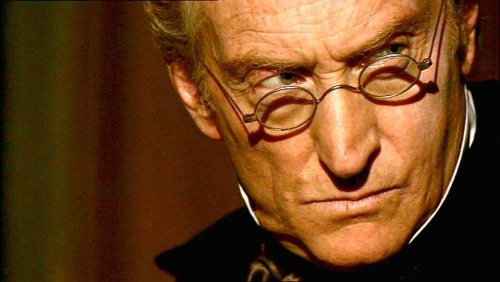
And using this impressive bit of lawyering on my part, we shall take the North!
3. Sense and Sensibility (2008)

Guess which one the more “free-spirited one” is.
I know nothing beats Professor Snape as Colonel Brandon, but this Sense and Sensibility has it all! Captain America’s Howard Stark as rascally Mr. Willoughby, an amazing tubby ginger kid as little Master Dashwood, Colonel Brandon’s ward and her Zoey Deschanel bangs, sword fights!, adorable Dan Stevens as Edward Ferrars before Downton Abbey, and Margaret. Margaret is one of my favorite examples of a non-character in a book who gets an amazing character makeover and becomes the best part of the entire adaptation. Seriously, I wish that someone would make one of those fanfic sequels based on this rendering of Margaret. (Okay, fine! I’ll do it! Haha!) Margaret, who is only about 11, follows in the great literary footsteps of Shakespeare’s Lady Macbeth and Beatrice by wishing that she and her sisters were men because if they were men, no one would dare treat them so badly; men can go out and do things and women have to wait for things to happen to them and she is sick of it. She hates living in a society where their home and worldly goods can be lawfully taken from them because their half-brother is easily led by his mean-spirited wife.

“I’m going to hide down here until feminism is a thing.” -Margaret
Despite her many winning qualities, Margaret is not the main character, of which the book/miniseries has two. Elinor and Marianne are faithfully portrayed and, as in all good adaptations, they are given depth that is easier to convey in a visual medium.
Elinor is shown having an emotional break down out of sight of others because of the INNER TURMOIL she must conceal. And you can actually watch Marianne falling for the dastardly Mr. Willoughby and you are maybe falling for the scoundrel a little, too. The slight blue tint of the world in this series reflects the ocean – the literal one that is always just in the background ready to dominate the setting, and the figurative one that seems to separate our heroines from fulfilment and happiness and self-knowledge.
And then, there’s Anne Steel with her whole thing with London men being either “smart beaux” or “nasty preening beasts,” which is just hilarious!
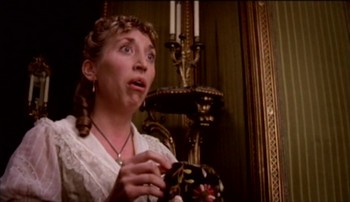
“Uh oh, did I do that?” – Anne Steele
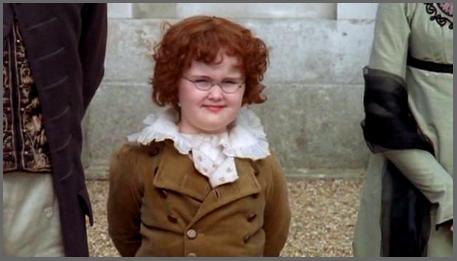
Bonus photo of tubby little Master Dashwood!
2. Henry Fielding’s Tom Jones, A Foundling (1997)
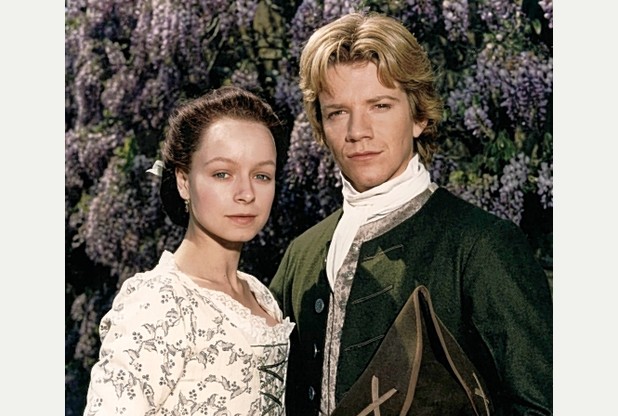
It’s not unusual to be loved by anyone! Oh, wrong Tom Jones…
Tom Jones is a romping good time! – like for reals, I often feel like romping around when I watch this one. The titular hero is so full of life and mischief that I begin to feel infected by the same joie de vivre! – that is until he is hit by misfortune after misfortune with no end but a bad one in sight. Tom is the good-natured scamp who is taken in by Squire Allworthy after he is abandoned by his mother for the perennial sin of being a bastard child. Mr. Allworthy raises him side-by-side with his own legitimate heir/nephew/wanker, young Master Blifil (that’s right, Blifil, Fielding sure can name characters). Tom makes some bad choices here and there, but his heart is usually in the right place, even if his pants aren’t (if you know what I mean ;D ); meanwhile, Blifil is just a low, conniving, weedling sissy-pants who does all that he can to bring Tom down in the world. Besides Blifil, there are other antagonists you just love to hate, like Mr. Square and Rev. Thwackum, both also aptly-named.
The main female character is Sofia Western, who is fun and curious and good-natured as a child and, though she becomes hilariously spoiled as she grows up, she never changes in essentials. She loves Tom, but doesn’t trust him to be faithful, for good reason, so she wants the best for him, but won’t commit to him – a real integrity-move for her time. Misfortune befalls her too, as her father (the best-acted part in the show) agrees to marry her to Master Blifil (eww, gross!) and she decides to run away to relatives who might be more sympathetic living in London.
There are a lot of reasons to love this miniseries and the book from which it’s adapted – the satisfaction of seeing good people end well and bad people end poorly, the bawdy humor, every scene with the INSANE Squire Western
[embedplusvideo height=”320″ width=”640″ editlink=”http://bit.ly/1RRcDFM” standard=”http://www.youtube.com/v/1AvMXmL0hl8?fs=1&start=48″ vars=”ytid=1AvMXmL0hl8&width=640&height=320&start=48&stop=&rs=w&hd=0&autoplay=0&react=0&chapters=¬es=” id=”ep1160″ /]
– but I have to admit that my favorite part is the twisty turny love story filled with obstacles and uncertainties. Those are the ones I usually find the most satisfying when told in a long ( I’ve read all 1000+ pages of the novel), brilliant work of art. Speaking of romantic works of art…
1. Pride and Prejudice (1995 aka “the good one”)
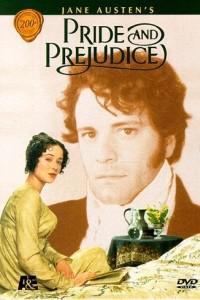
“The Good One”
To be honest, I tried hard not to let P&P take the top spot. I wanted to seem cool and a little “anti” by listing this as anything but first, but let’s be even more honest here: THAT WOULD BE AN OUTRIGHT TRAVESTY. To put it mildly, this miniseries is an Andrew Motherloving Davies masterpiece.
I will begin with the confession that this has for years been my go-to sick day show (originally inspired by my great and often-ill delicate flower of a friend, Anne). I’m sick, staying home, made some soup, and I snuggle in and must make the difficult decision between Disc 1 and Disc 2 of the DVD boxed set. Disc 1 is for a long illness or for when I am feeling ambitious about staying awake through the cold/flu medicine. Skipping to Disc 2 is for when I know I don’t have the luxury of being able to watch watch both because Disc 2 is where it all goes down: the aftermath of the proposal, the spiteful letter, meeting the new and improved Darcy, Lydia’s scandal, and the story’s wonderful resolution. I can recite most of the show as it’s playing out on my screen (usually from “Disc 2,” and often with Anne reciting along) and I usually laugh before a funny scene has quite gotten to the funny part out of sheer anticipation. One thing I have really enjoyed mastering from so many viewings is the ability to read into all the little twitches of Mr. Darcy’s/Colin Firth’s mouth and eyes and learning to interpret them as intense and profound emotions. You’ll notice that, for a romantic hero, he doesn’t show a lot of outward emotion (besides the fencing and the lake diving), so you learn to read the tiniest of smiles as broad grins of unabashed joy and the almost-blank stares as heart-wrenching looks of longing, which is a lot more satisfying than you might think.
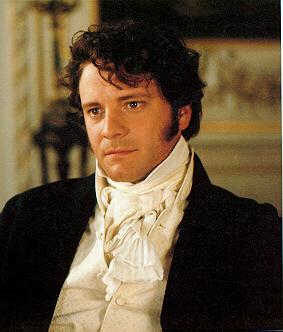
ALL THE FEELS
A couple of other things you notice as a frequent viewer is the myriad of extras with absurd facial hair and the adorable extra scenes, such as when the dog begins to howl along with Mary’s piano playing at the assembly in Meryton.
Another confession: even though I was for years an adamant Mrs. Darcy hopeful, I was always secretly in love with Bingley. Yes, yes he is easily talked out of his convictions and he has a shockingly low opinion of himself, but at least he is kind and mindful of other people’s feelings and doesn’t go around insulting everyone to their face (or even behind their back probably) like some other dreamy hunks we all know and love.
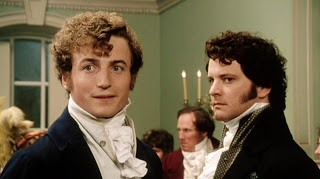
Like night and day.
Speaking of dreamy hunks, any form of opinion given about this miniseries is incomplete without at least a mention of the infamous wet shirt scene.
[embedplusvideo height=”360″ width=”640″ editlink=”http://bit.ly/1CHl6o1″ standard=”http://www.youtube.com/v/hasKmDr1yrA?fs=1&start=29″ vars=”ytid=hasKmDr1yrA&width=640&height=360&start=29&stop=102&rs=w&hd=0&autoplay=0&react=0&chapters=¬es=” id=”ep8751″ /]
I usually start a-swooning in Darcy’s scene before this one where he is spiritedly fencing with an older gentleman in order to repress his RAGING INNER PASSION AND ANGUISH. But I definitely hit full levels of figurative swoonage when he plunges into that lake to soothe his ACHING *SOUL (*read loins if you choose).
Okay, enough about the male leads, the real stars are the females in this one. Elizabeth Bennet is accurately praised as being one of the greatest and most complex characters ever written. She refuses to let her circumstances dictate everything about her life and defies the people who would see her “put in her place.” Many people will argue that she never really had any hardship and she was just stubborn, but those people can keep their ill-formed opinions to themselves and steer clear of making a real scholarly debate with me. Anyway, Jennifer Elle is the best Elizabeth Bennet who has ever graced the screen and it is a testament to the great casting in this show that no one character is outshined by any of the others – they are a very harmonious ensemble. Jane is appropriately pretty, Mary is plain and sullen, Kitty is fairly non-descript, and Lydia has them crazy eyes. Mr. Bennet is amused by everything, Mrs. Bennet is sent into nervous fits over everything, and Mr. Collins is an oafish brown-noser who can’t stop talking about Lady Catherine de Bourgh. It’s all perfect.
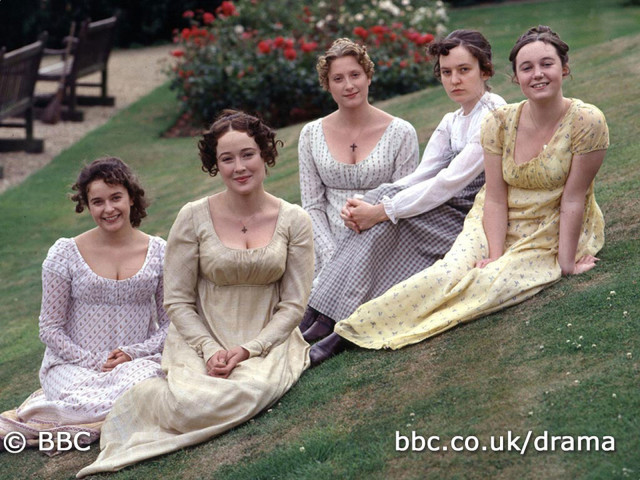
The Sisters Bennet





